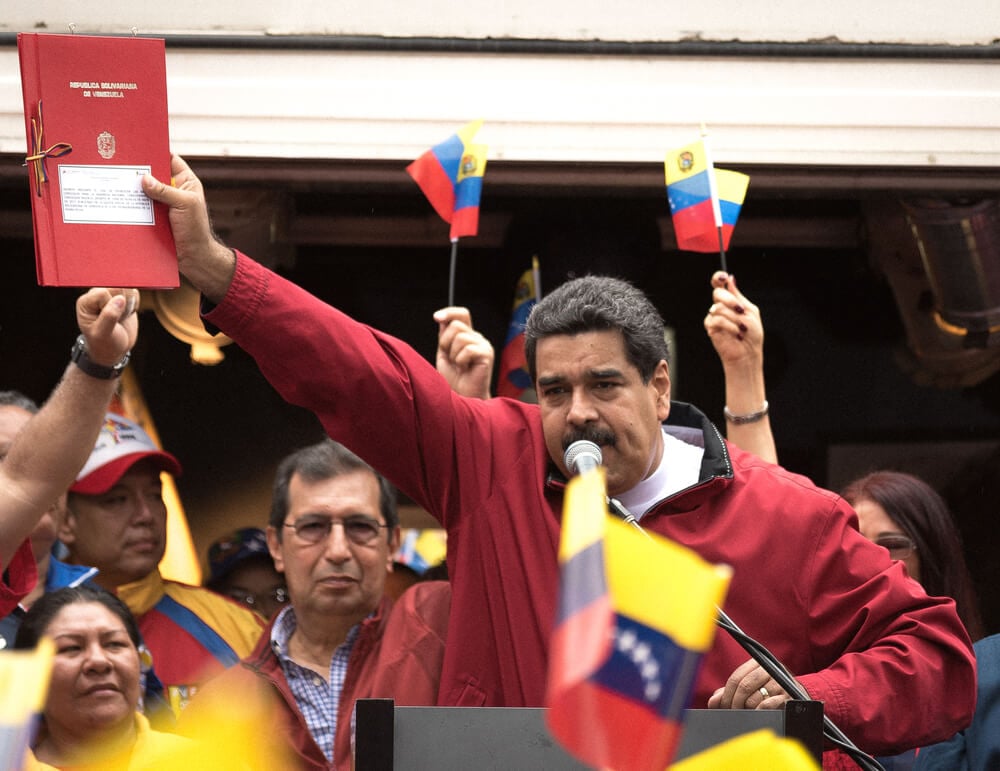Venezuelan President Calls on 11 Countries to Adopt State Cryptocurrency Petro

Venezuelan President Nicolas Maduro
Venezuelan president Nicholas Maduro has called on members of the Bolivarian Alliance for the Peoples of America (ALBA) to support the petro, Venezuela’s state-sponsored cryptocurrency.
The alliance–which consists of Antigua and Barbuda, Bolivia, Cuba, Dominica, Ecuador, Nicaragua, Saint Lucia, Saint Vincent and the Grenadines, Saint Kitts and Nevis, Granada and Venezuela–met last Friday in Caracas, Venezuela’s capital, for an ALBA political council meeting.
In his closing remarks, Maduro urged his compatriots to adopt the petro, the Colombian news outlet El Tiempo originally reported.
“I put on the table, brother governments of the ALBA, the proposal of the cryptocurrency the petro, so that we [may] assume it as one of the projects of integration of the 21st century in a bold way, but also in a creative way.”
Consequently, Maduro’s appeal to the coalition comes in the same week that Venzuela’s parliament declared that the petro is unconstitutional.
The Petro: A Brief History and Context
President Maduro first revealed plans for the petro in a televised address back in December. The cryptocurrency, he announced, would be back by oil, diamond, and gold commodity reserves. It’s his hope that the petro will “advance monetary sovereignty, as it will help to overcome the financial blockade and thus move towards new forms of international financing for the economic and social development of the country.”
With the petro, the Venezuelan government hopes to circumvent sanctions imposed by the Trump administration , as well as shore up an economic crisis that has the bolivar, Venezuela’s native currency, plummeting against the US dollar .
Meanwhile, Venezuelan citizens are emigrating out of the country in droves, while some who have stayed have turned to mining or buying bitcoin to stay financially afloat amidst a sinking economy.
Two weeks ago, Maduro mandated the circulation of 100 million petro, the first issuance of the state-sponsored cryptocurrency to date. Each coin will be back by a single barrel of crude oil, making the total supply worth roughly $6bln at current oil prices. Under government supervision, dissemination of the currency will take place through virtual exchange houses, and transactions will be processed by groups of national miners.
Featured image from Shutterstock.